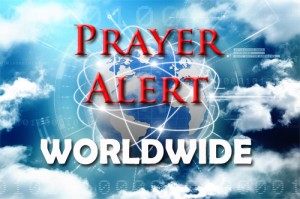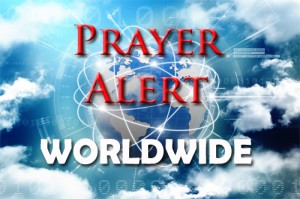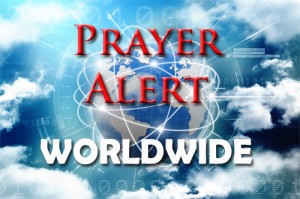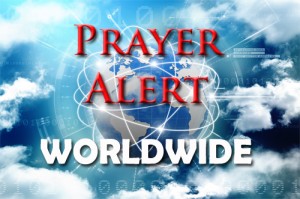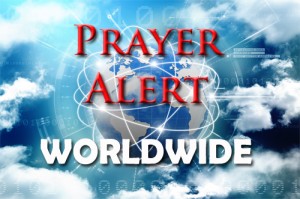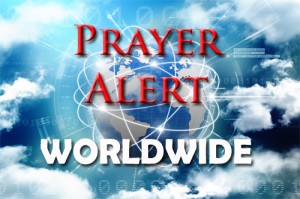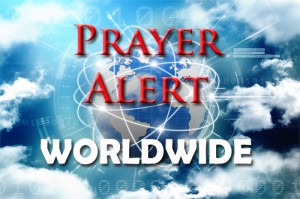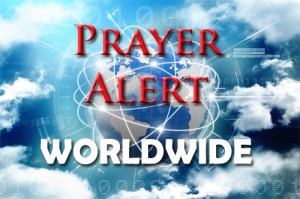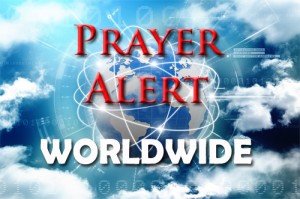Displaying items by tag: Asia
Myanmar: religious persecution
Myanmar has 100+ ethnic groups, and over 2,200 Buddhist temples. It is rich in natural resources such as gems, oil, and natural gas. The military holds great influence in the government, forcibly repressing popular democratic movements and exploiting the country's rich natural resources, leaving the nation’s economy in shambles. Many are in poverty. Additionally, Myanmar suffers the second highest HIV/AIDS rate in southeast Asia, with a reported 54% of adults and 78% of children receiving treatment. The creation and use of illegal drugs is a contributing factor to this epidemic. It has been reported that at least 200,000 households are involved in the production of poppies, the source of illegal opiates. Recently, the largest human exodus since the Vietnam War began as Rohingya Muslims were driven out in what the UN described as ‘ethnic cleansing at the hands of the military’. Myanmar is 80% Buddhist, 8% Christian, and 7% Muslim. 84% remain unreached with the Gospel. Freedom of religion is restricted. The military actively promote Buddhism.
Philippines and Thailand: Bible translations
Praise God for the initiative of the Asi people in forming the ‘Asi Bible Association,’ to oversee New Testament distribution. Pray for good decisions and the finances needed to distribute the Scriptures in written, audio and digital formats, including the Jesus film, DVDs, CDs, and hymn books. Pray that people of the Philippines will be eager to engage with the Scriptures available to them. Praise God also for the hundreds of followers of the Northern Thai Facebook group formed when the New Testament was dedicated in early 2018. Pray for the scripture engagement team as they put out an updated version of the phone app. There will be a meeting of churches in September to encourage support for translation of the Old Testament. Ask God to bring many to the meeting, and that funds will be found to pay the salary for a scripture engagement coordinator for another year.
Korea: a ‘kairos’ time
On 15 August North and South Korea celebrated their liberation from Japanese occupation in 1948, South Korea celebrated its 70th anniversary as a state founded purposefully as a Christian state, and North Korea also celebrated its formation. Seventy years is a significant time period for God: see A process towards reunification of the north and south was started by a joint declaration in June 2000, which was reaffirmed in April 2018 by the Panmunjom Declaration for peace, prosperity and unification of the Korean Peninsula. The two countries agreed to work towards a peaceful reunification in the future.
Iran: campaigns for Christians
Amnesty International has called for the release of four Iranians sentenced to a combined total of 45 years in prison. Its report calls for urgent action from the Iranian government to quash the convictions and sentences of Victor Bet-Tamraz, Shamiram Isavi, Amin Afshar-Naderi, and Hadi Asgari, ‘as they have been targeted solely for the peaceful exercise of their rights to freedoms of religion and belief, expression, and association, through their Christian faith’. They are currently free on bail, awaiting the outcome of their appeals. Also dual-nationality UK/Iranian charity worker Nazanin Zaghari-Ratcliffe is serving a five-year jail sentence after being accused of spying. Her British husband has been campaigning for her release, and the UK’s foreign secretary has also attempted to secure her freedom. She is currently in hospital, after suffering panic attacks following three days of freedom from jail.
Myanmar: human rights crisis
Oscar-winning actor Cate Blanchett described to the UN security council meeting in New York 'gut-wrenching' accounts from Myanmar of Rohingya people being tortured, raped and killed in front of their relatives. 'How can any mother endure seeing her child thrown into a fire?' she said. The UNHCR goodwill ambassador also praised Bangladesh for taking in more than 700,000 refugees, calling it 'one of the most visible and significant gestures of humanity of our time'. UN secretary general António Guterres has called for those behind the Rohingya crisis to be held accountable, urging the council to act on what has become 'one of the world’s worst humanitarian and human rights crises'. However Aung San Suu Kyi probably won't be stripped of her Nobel peace prize, despite revelations around the Rohingya crisis. The UN report said that Myanmar’s military carried out mass killings of Muslim Rohingya. See
Saudi Arabia: repression
Five Saudi activists face possible execution for ‘participating in protests’, ‘chanting slogans hostile to the regime’, and ‘filming protests and publishing on social media’. The five, including women’s rights campaigner Israa al-Ghomgham, have spent over two years in prison. Now their deaths are demanded. Their plight reveals the emptiness of claims that Saudi Arabia is ‘liberalising’ after the death of King Abdullah and that the heir apparent, Prince Muhammad bin Salman, is a driving force behind ‘modernisation’. Over the past year, dozens of activists, clerics, journalists and intellectuals have been detained in a pattern of widespread and systematic arbitrary arrests and detention. Under current ‘reforming’ 146 people were executed in 2017, many for political dissent, which the Saudi authorities rebrand as ‘terrorism’. The regime permits women to drive, but executes them for speaking out of turn. Christians are treated as second-class citizens and persecution is an ongoing and serious problem. Apostasy is punishable by death for Christian converts who refuse to recant. See also
India: waters recede but thousands still trapped
Monsoon flood waters have receded in Kerala after the worst monsoon rains in a century, allowing authorities to retrieve the bodies of victims and enabling residents to start assessing the damage to their homes. But it is feared that thousands of people are still trapped in the worst-hit areas. Pray for regular supplies of clean drinking water and electricity to be distributed quickly and fairly to the state’s 33 million residents. Pray for the thousands of army, navy and air force personnel still searching for survivors and delivering food, medicine and water to those stranded in remote, hilly areas cut off by damaged roads and bridges. Pray for the 1,028,000 people sheltering in 3,274 relief camps. Disinfectants in adequate quantities are needed to prevent water-borne diseases. Pray for more paramedics to be available to advise and give medical aid. The government said it needs hundreds of thousands of electricians, plumbers and carpenters to bring Kerala back to normality. See
Facebook removes Russian and Iranian accounts
Facebook has identified and banned groups and pages engaged in misleading political behaviour and removed 652 pages, groups, and accounts linked to Russia and Iran, for ‘coordinated inauthentic behaviour’ that included the sharing of political material. Facebook significantly stepped up policing its platform after acknowledging that Russian agents successfully ran political influence operations on its platform aimed at influencing the 2016 US presidential election. Other social media networks have done likewise, and continue to turn up fresh evidence of political disinformation campaigns.
Turkey: Erdogan refuses to release pastor, lira plunges
The Turkish currency is in freefall after President Trump escalated a feud with Ankara by doubling tariffs on metals imports. The lira has long been falling due to worries about President Erdogan's influence over monetary policy and worsening US relations. Turkey and the USA are at odds over many issues, the most pressing being the detention of pastor Andrew Brunson who was jailed for allegedly supporting a group that Ankara blames for the failed coup. He faces 35 years in prison, and on 15 August a court ruled he must remain under house arrest. Qatar has pledged $15 billion of investments after Erdogan said that the shadowy ‘interest rate lobby’ and Western credit ratings agencies were attempting to bring down the economy. He said, ‘If there is anyone who has dollars or gold under their pillows, they should go and exchange it for liras at our banks. This is a national, domestic battle.’ See also
Yemen: mass funeral for boys
On 12 August, a Saudi-led airstrike on Yemen killed 51 people (including 40 children) and wounded 79. The next day hundreds of mourners gathered for a mass funeral for the schoolboys. By the caskets stood signs saying, ‘America killed the children of Yemen’. The procession, organised by Houthi rebels, was one of several taking place across Yemen. The US defence secretary is sending a three-star general to help the Saudi-led coalition to investigate the strike and see if there is anything that can be done to prevent this in the future. UNICEF said the strike was the worst attack on children since the war escalated in 2015. It is now the world’s worst humanitarian crisis, with 22 million people in desperate need of aid and protection.
